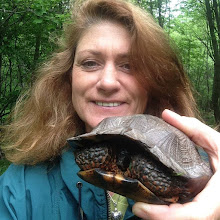

Tuesday, December 21, 2010, when we not only experience a powerful Full Moon & Lunar Eclipse, but also the annual Winter Solstice, the official first day of Winter.
A Lunar Eclipse happens only during Full Moons, usually twice/yearly, when Earth is directly in-between the solar sphere & the lunar sphere; therefore Earth’s shadow falls on the Moon. Tonight the Eclipse begins at 1:33am EST. At that time, Earth's shadow will appear as a dark-red bite at the edge of the lunar disk. It takes about an hour for the "bite" to expand and swallow the entire Moon. Totality commences at 02:41 am EST and lasts for 72 minutes. At 3:17am EST the Moon will be in deepest shadow, displaying the most fantastic shades of coppery red. Why red? A quick trip to the Moon provides the answer: Imagine yourself standing on a dusty lunar plain looking up at the sky. Overhead hangs Earth, nightside down, completely hiding the sun behind it. The eclipse is underway.You might expect Earth seen in this way to be utterly dark, but it's not. The rim of the planet is on fire! As you scan your eye around Earth's circumference, you're seeing every sunrise and every sunset in the world, all of them, all at once. This incredible light beams into the heart of Earth's shadow, filling it with a coppery glow and transforming the Moon into a great red orb. This lunar eclipse falls on the date of the northern winter solstice. How rare is that? Total lunar eclipses in northern winter are fairly common. There have been three of them in the past ten years alone. A lunar eclipse smack-dab on the date of the solstice, however, is unusual. Since Year 1, only one previous instance of an eclipse matching the same calendar date as the solstice, and that is December 21, 1638.You won't have to wait 372 years for the next one...that will be on December 21, 2094. (Dr.Tony Phillips)
The Solstice (6:38pm EST) is the darkest time of the year (Northern Hemisphere), the longest night & yet it is also the turning point when we begin to experience a bit more light every day. The Ancients in many cultures celebrated this magical occasion & so do I!

No comments:
Post a Comment